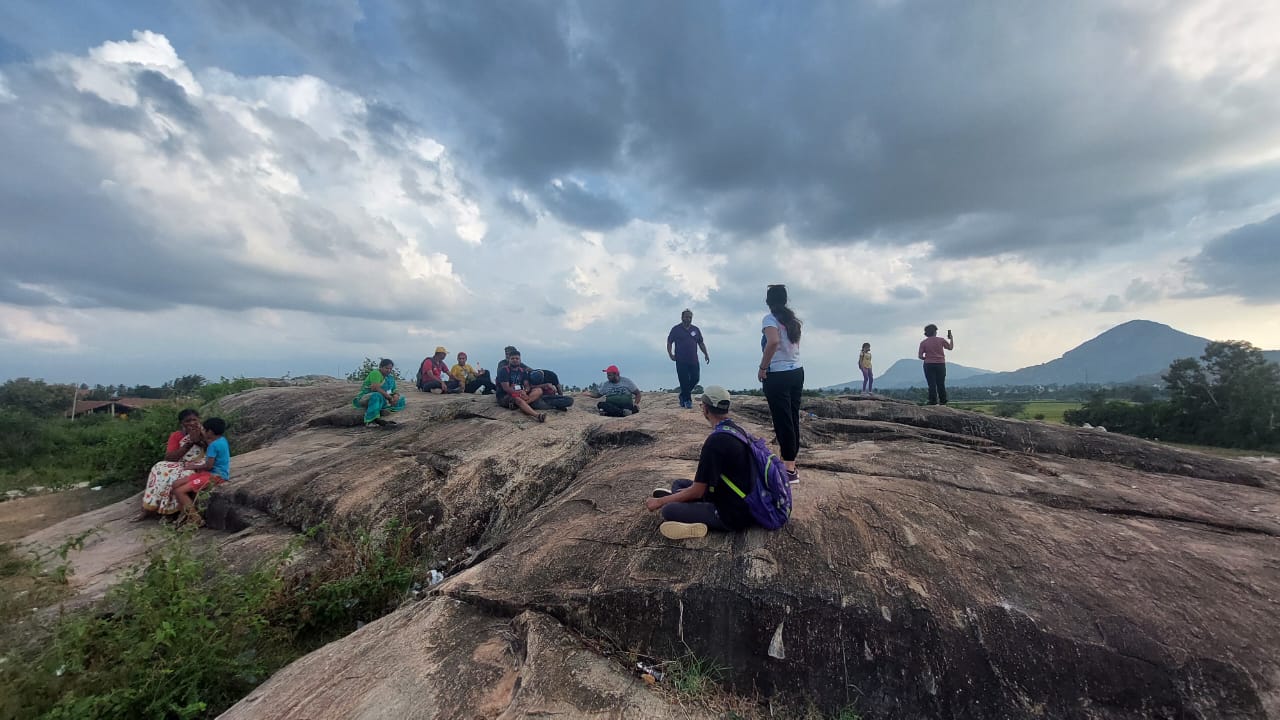‘The children always surprise us.’
In the past three years of working with Snehadhara, there have been numerous instances where I have felt the power of these few simple words. Be it field trips, overnighters, visits of people to our campus, or the conceptualization of the semi-residential programme, the children we have worked with have always adapted to change, negotiated with themselves and the world and risen up to the challenges we have given them. Few spaces provide children with such opportunities, and Snehadhara Foundation has always taken pride in bridging that gap.
One such recent experience that I was a part of was an Outdoor Adventure Camp organized by INME and Snehadhara Foundation to give children with special needs and disabilities the experience of the outdoors. While the idea excited us all in both the teams, I personally was tentative about how would it work. The conception of the idea began as a conversation between the leadership of these two organizations, recognizing a need and a missing piece of the childhood experience for our children. At Snehadhara Foundation, thoughts often translate into action swiftly, and this endeavor was no exception. Over the past few months, we embarked on a journey to make this camp a reality, driven by our collective belief in its potential.
At SF, social experiments through social experiences are a way of life for our children. We hope and aim everyday to expand their social worlds, and this opportunity was golden. After a lot of work, sleepless nights, back and forth meetings, marketing, speaking to parents, teachers and organizations, the day was finally here.
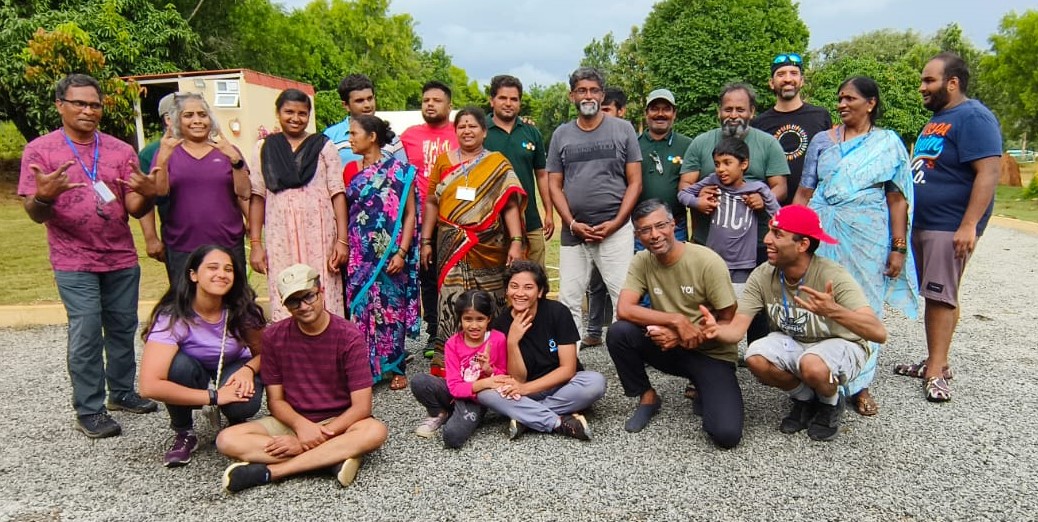
The parents’ excited yet apprehensive expressions welcomed us at the bus stop, where the children and team members from both organizations were about to embark on a journey to Skandagiri for the camp.
Excited teams loaded into the bus and were off on a journey that each of us recognized would be memorable no matter what its outcome. Upon reaching the camp, the welcome with open arms that we received stayed with us as we were floored by the serene and beautiful campsite itself. ‘The space holds healing, love and care’, I remember thinking as we reached. At the camp, the group shared with each other and us many experiences. From unfamiliar hikes across lakes and picnic under the trees, to visits to the Adiyogi statue, the group experienced the outdoors in their own ways. What stayed with me most through the day was how the children showed us sides of them that we hadn’t seen in years. The public, while turning heads and curious stares, seemed to be okay with the presence of the children and treated them as one amongst the crowd- a luxury that is often not available to them, but we were pleasantly happy to observe.
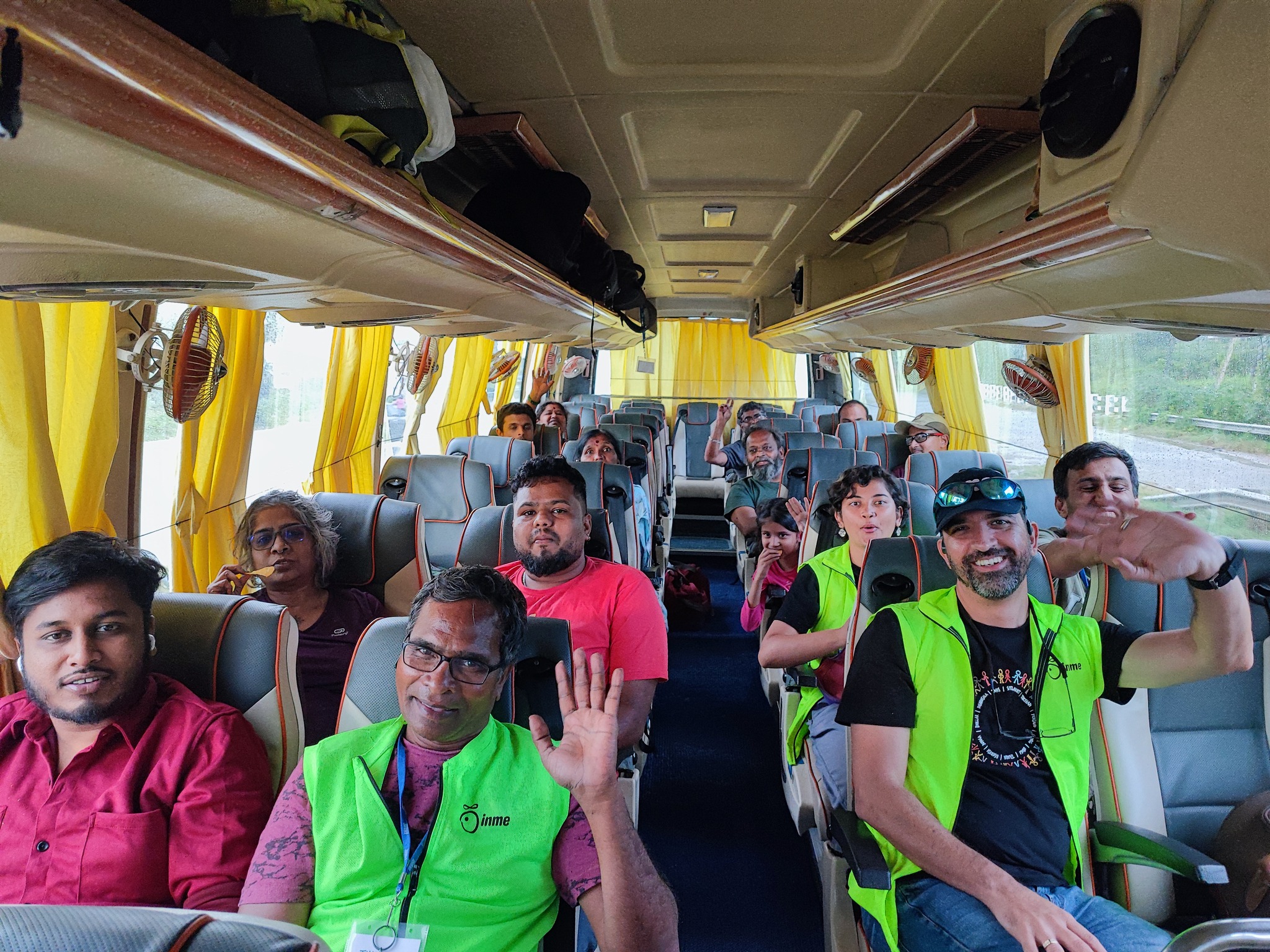
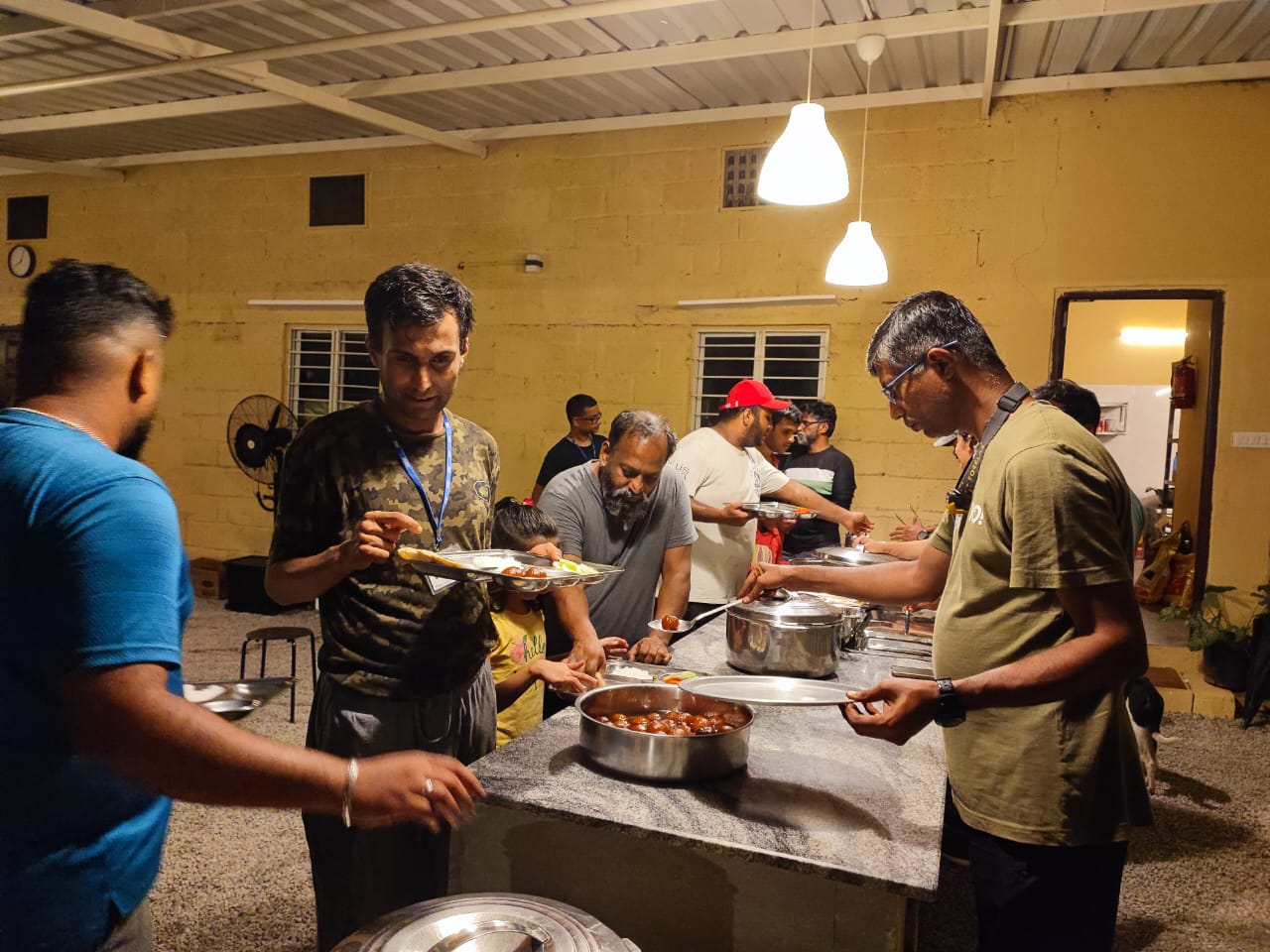
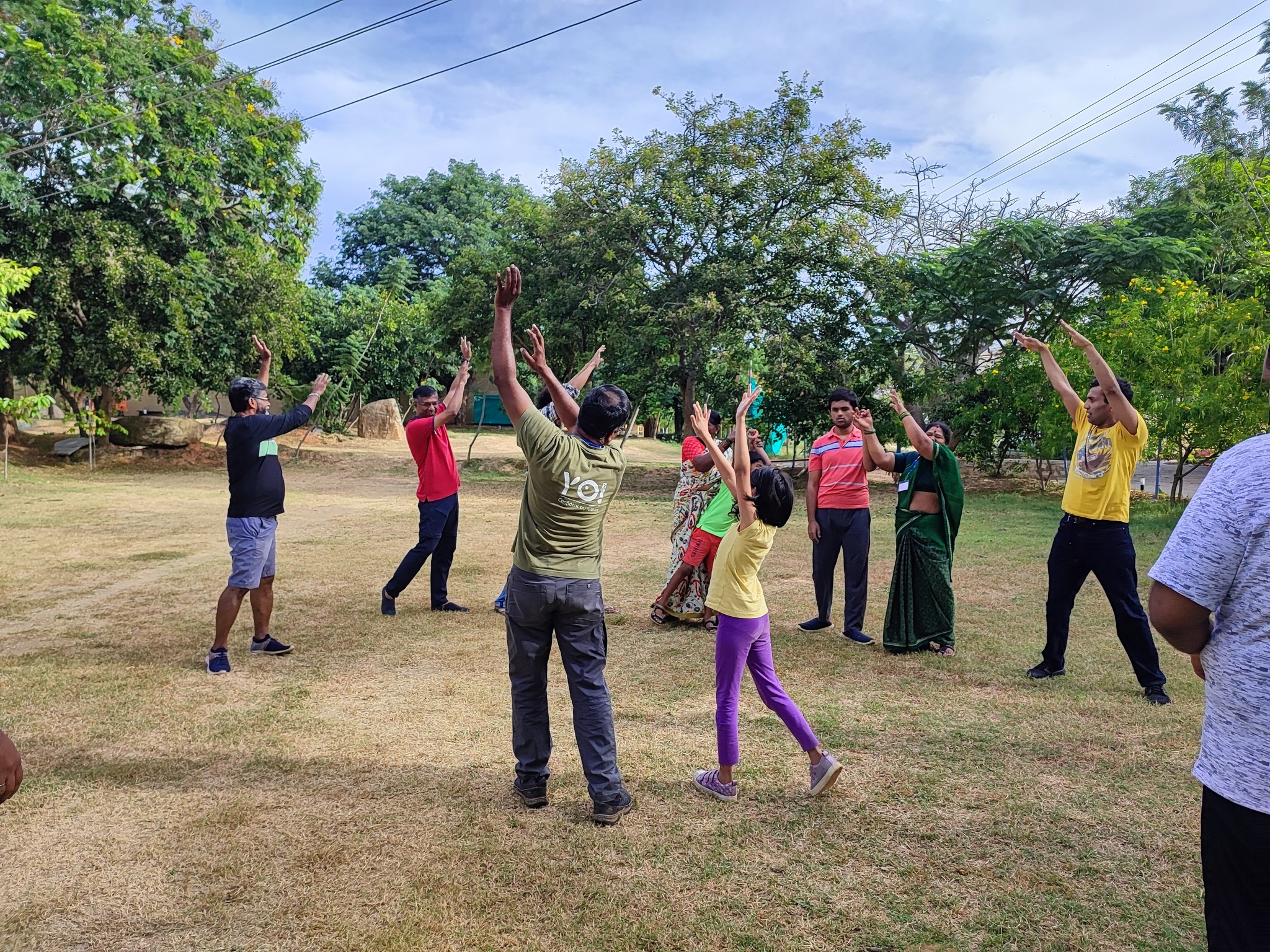
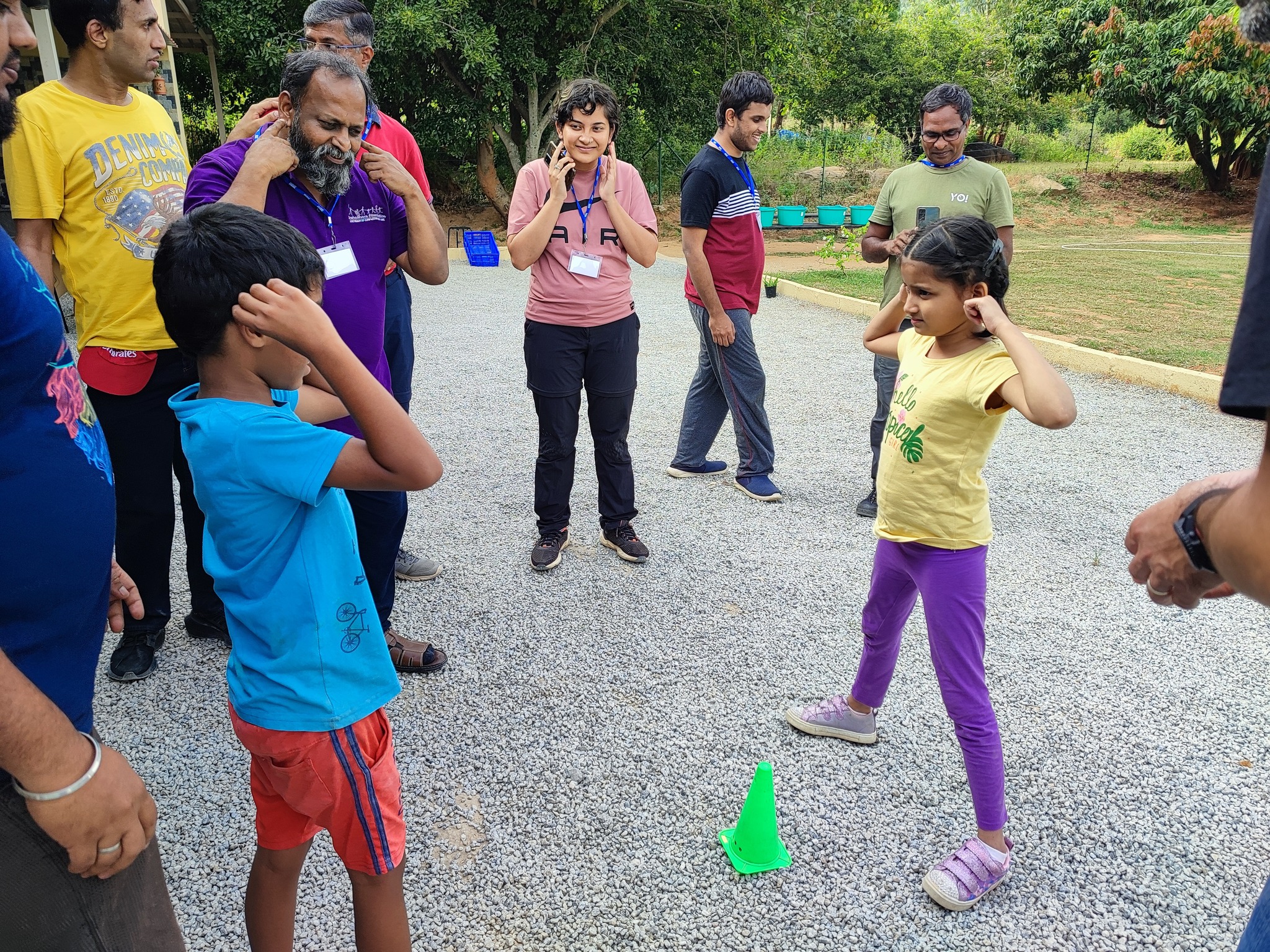
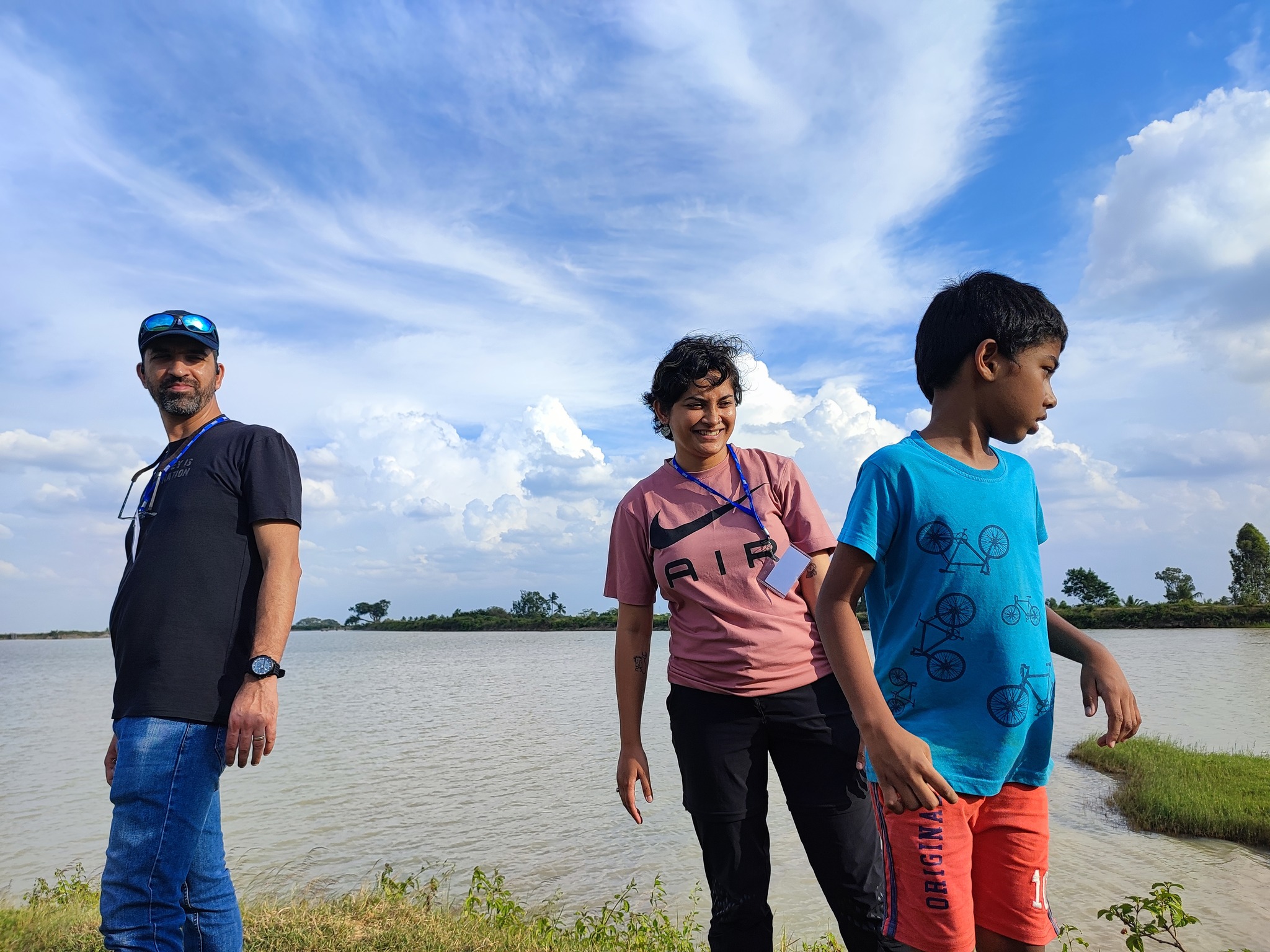
The second day of the camp kicked off with a series of adventure activities on a rope course. With three levels of challenges, the children eagerly tackled each one, determined to prove that doubt had no place in their journey. Climbing and walking across ropes, balancing and trusting one another, and overcoming motor challenges, the group demonstrated remarkable teamwork. In that moment, I realized that we, the ‘neurotypicals,’ often let fear guide us, while the children were liberated from these fears, allowing the experience to take over their bodies. The day continued with creative tie-dye craftwork and a visit to the ancient Rangasthala temple, where we were graced by a gentle rain, a rarity in Skandagiri. An instructor at the camp remarked that it hardly ever rained there, to which we collectively replied, ‘The children brought in freshness and rejuvenation with them.’ The night concluded with friendly games, leaving the instructors with a newfound belief in the children’s abilities, emphasizing that they can achieve much more than we often think, given the opportunity and belief.
The third day of the camp seemed to have transformed us all. The adventure began with ziplining, an activity that even the facilitators found intimidating. With encouragement, pushes, and a shared sense of purpose, the team embarked on a mission to have the group experience this activity. To our amazement, the children eagerly embraced the opportunity. Some had shaky hands, while others stood tall and fearless. Each of these children with special needs, whom we adults believed needed more help than they did, ziplined across approximately 80 feet of metal wire in Skandagiri. One child excitedly exclaimed, ‘I’ve always wanted to fly, and today I did.’ We realized that our children can run, jump, skip, and soar across both the land and the sky. As we looked down from the fourth floor of the ziplining tower, with hills on one side and a lake on the other, all we saw was limitless opportunity and possibility, if only we dare to take the leap.
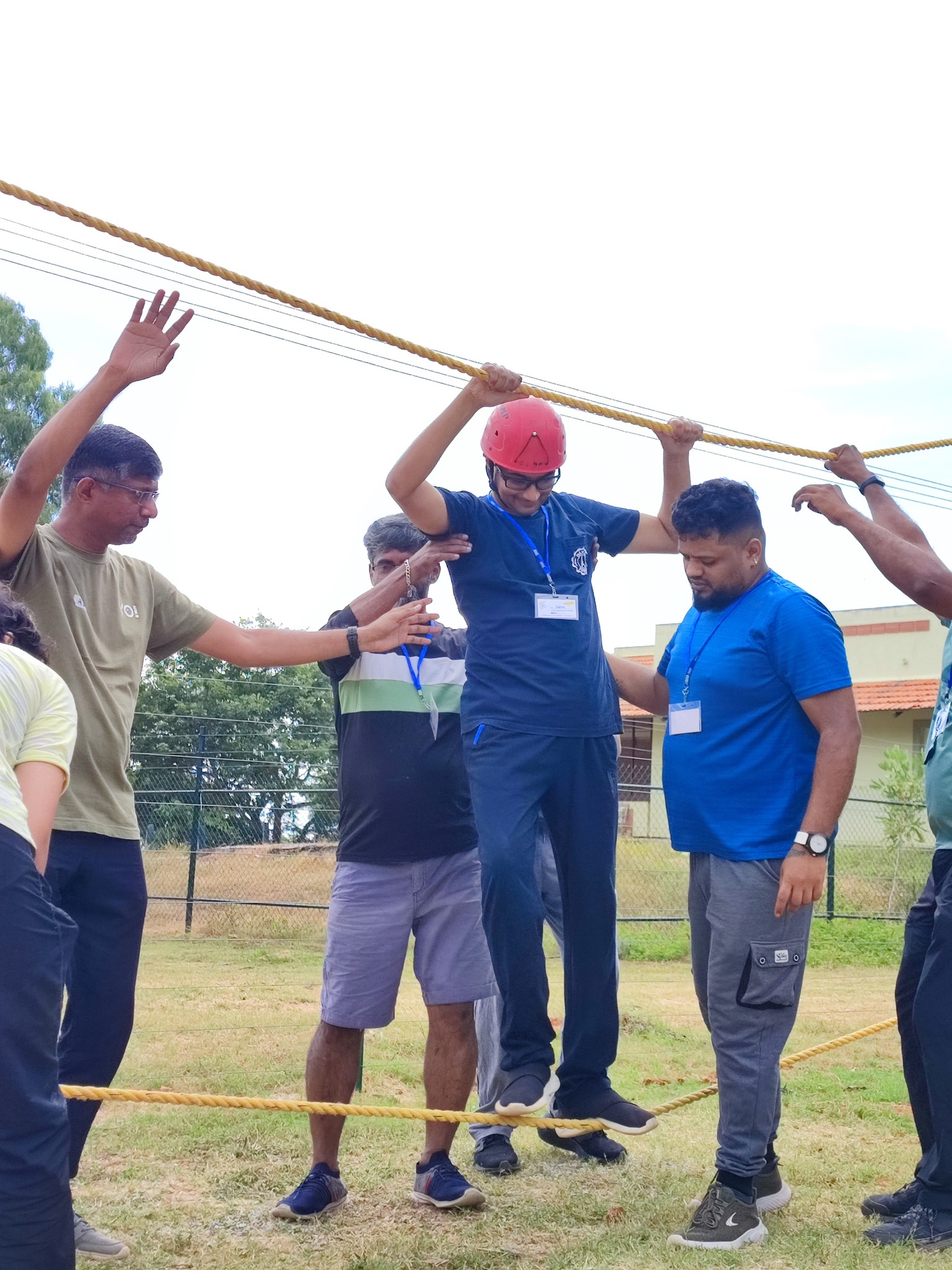
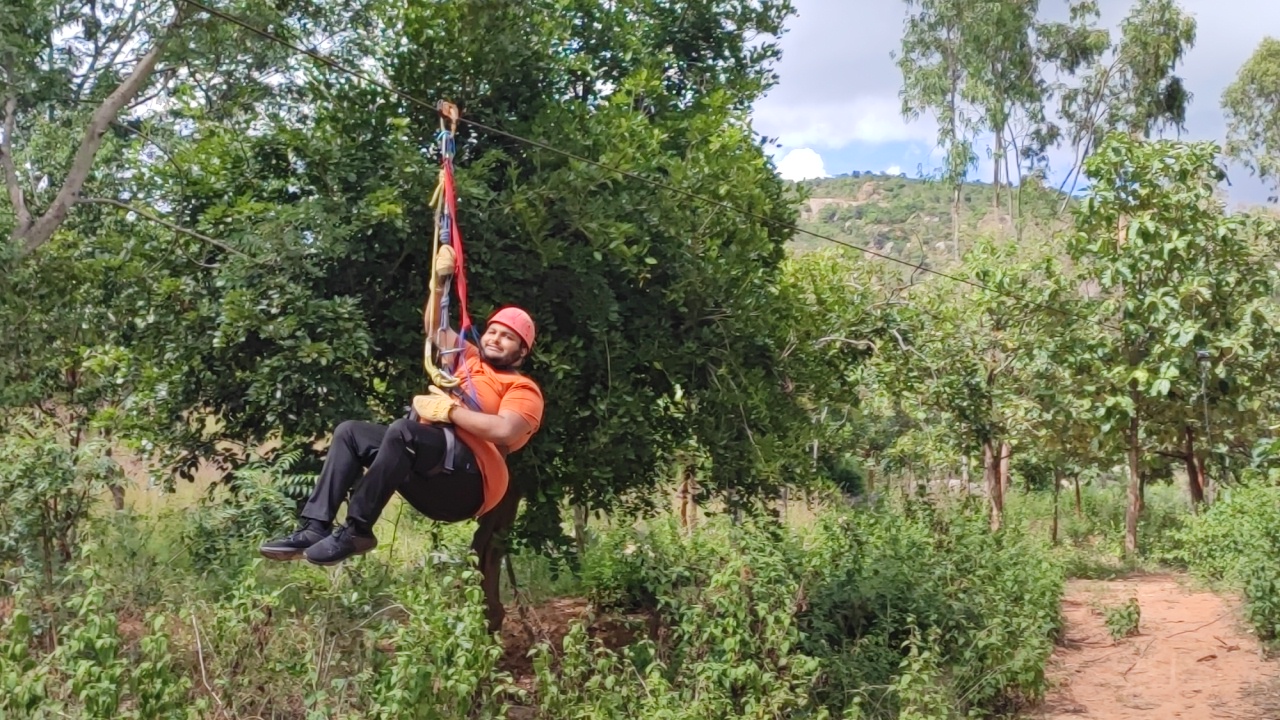
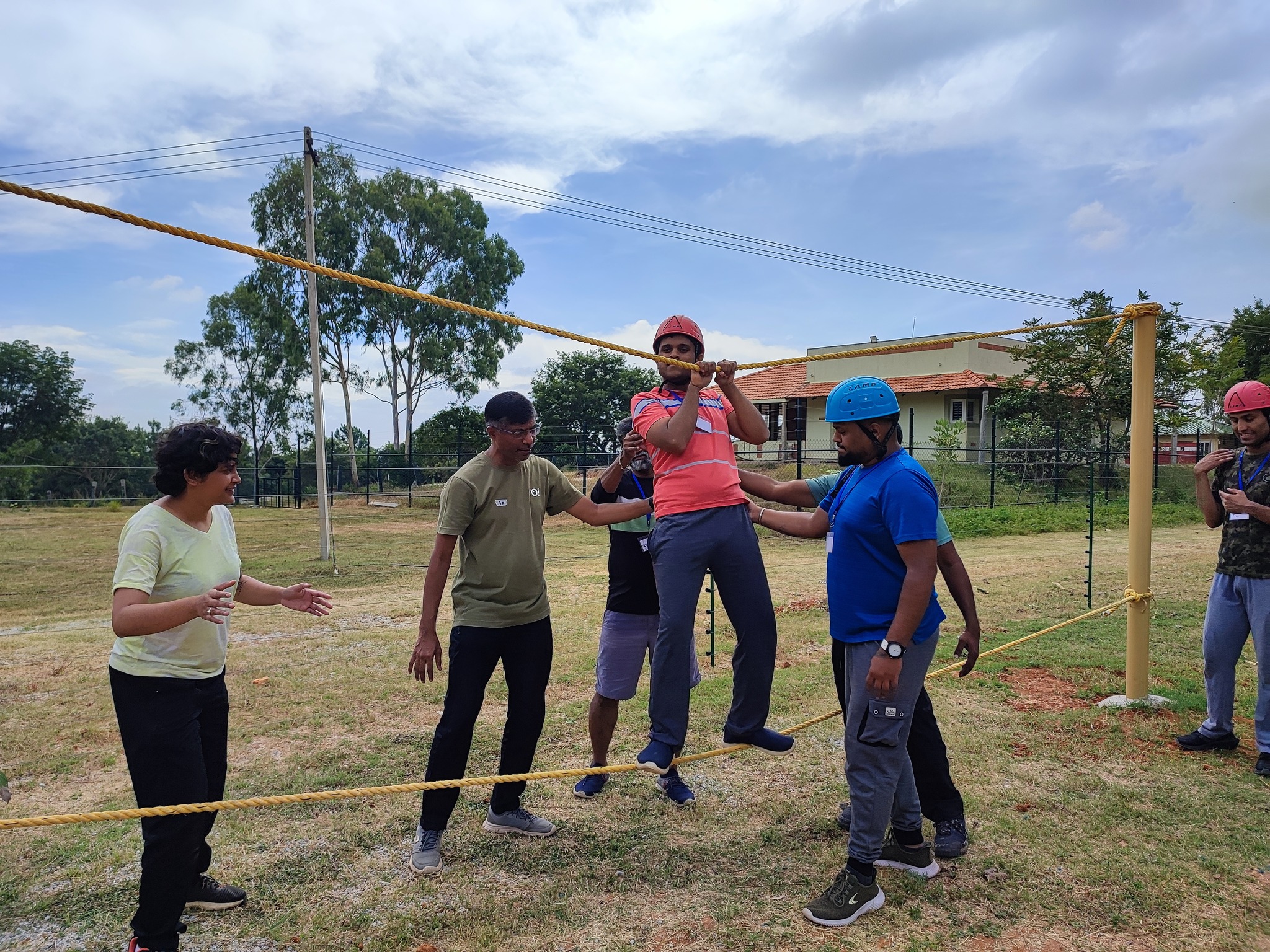
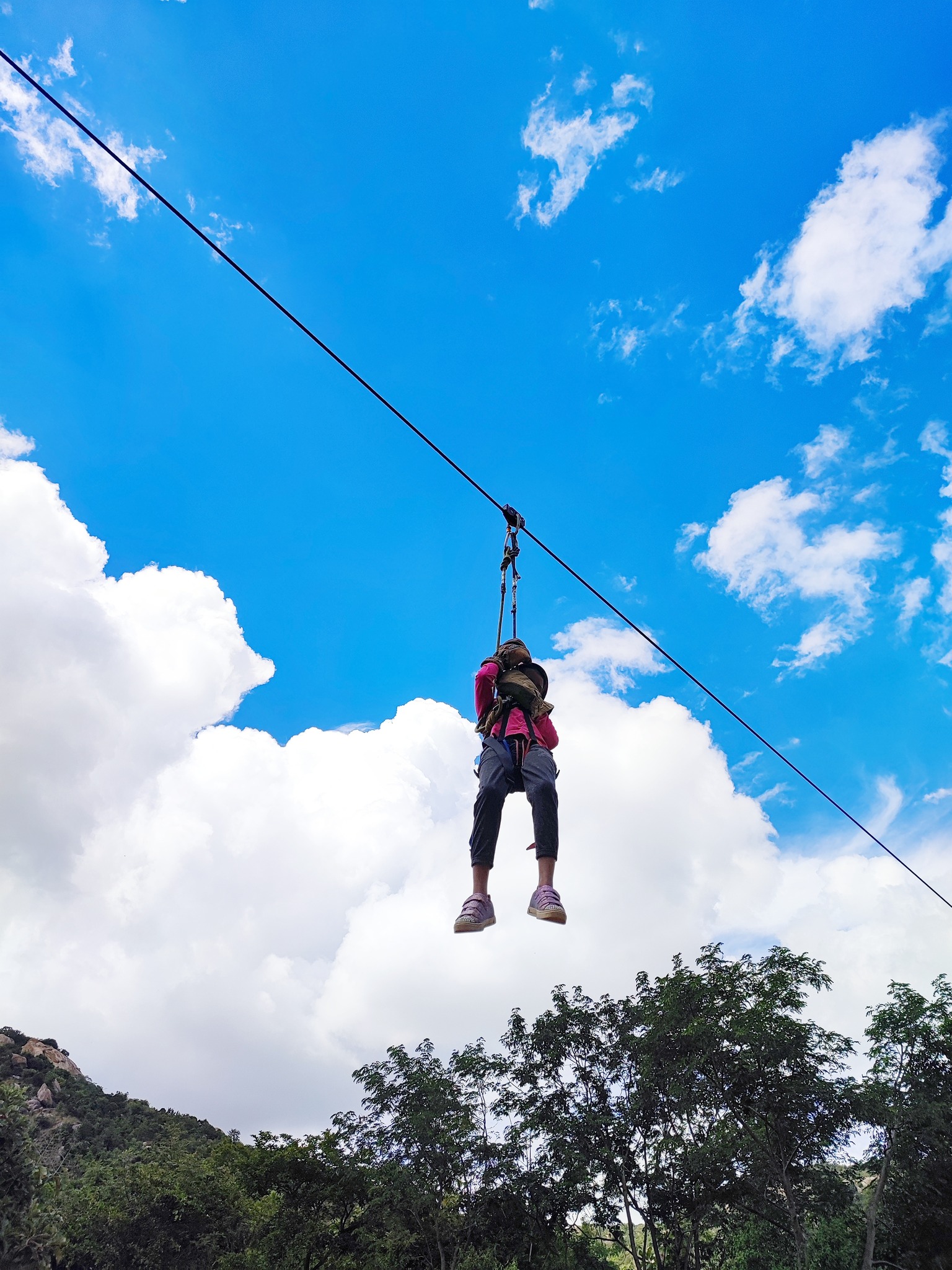
What moved me the most was the sharings of the parents. As we continued to spam them with milestones that their child achieved, the outpouring of love stayed with me. Parents telling us that they wish we do more of these programmes even if parents like them are skeptical was a feat to achieve in itself. Sometimes all parents need is some fierce compassion, a push with reassurance to say that let your child take that leap- they will prevail. We were welcomed back with a loving round of applause, hugs, tears and parents beaming with pride at the bus stop.
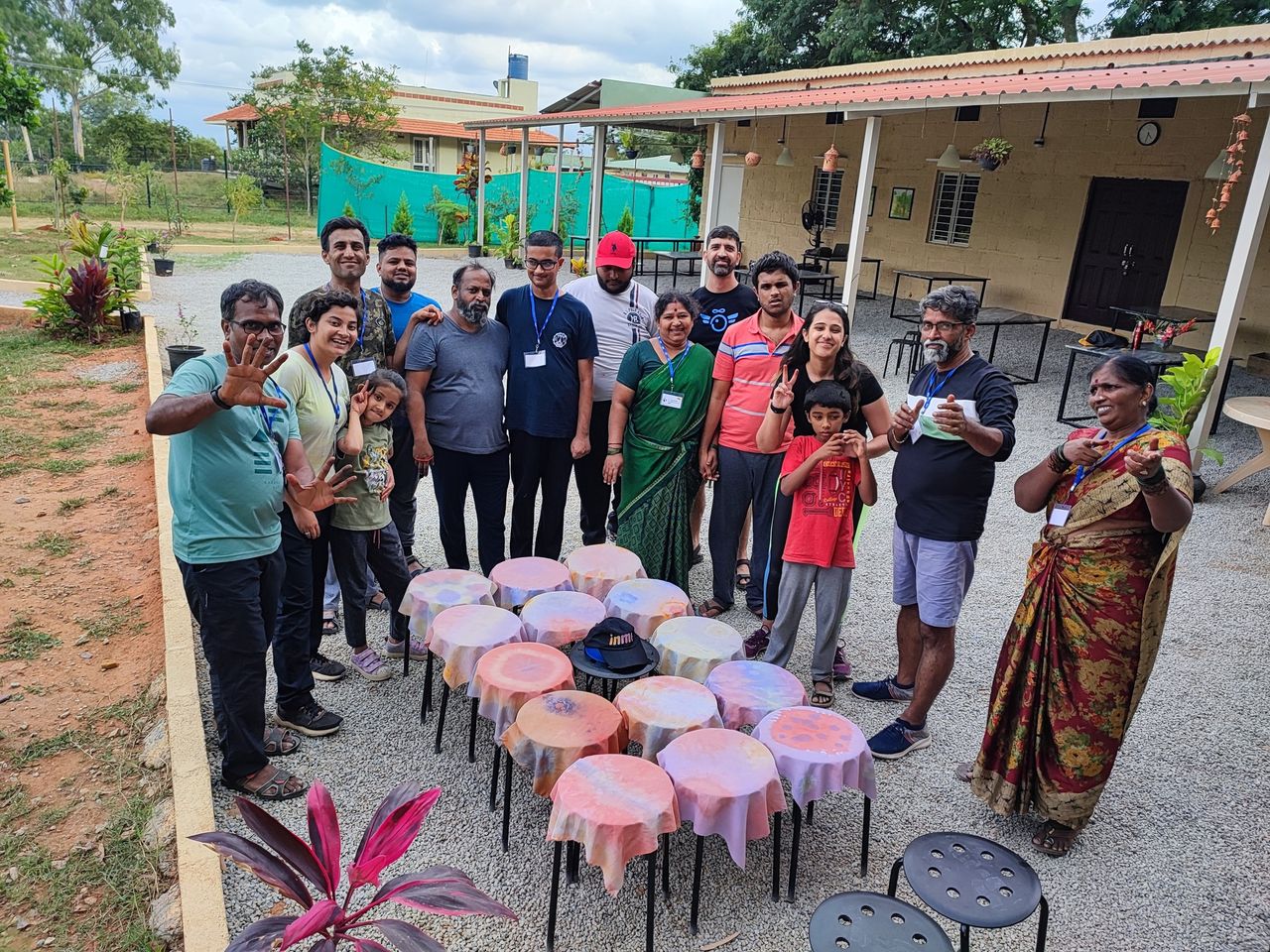
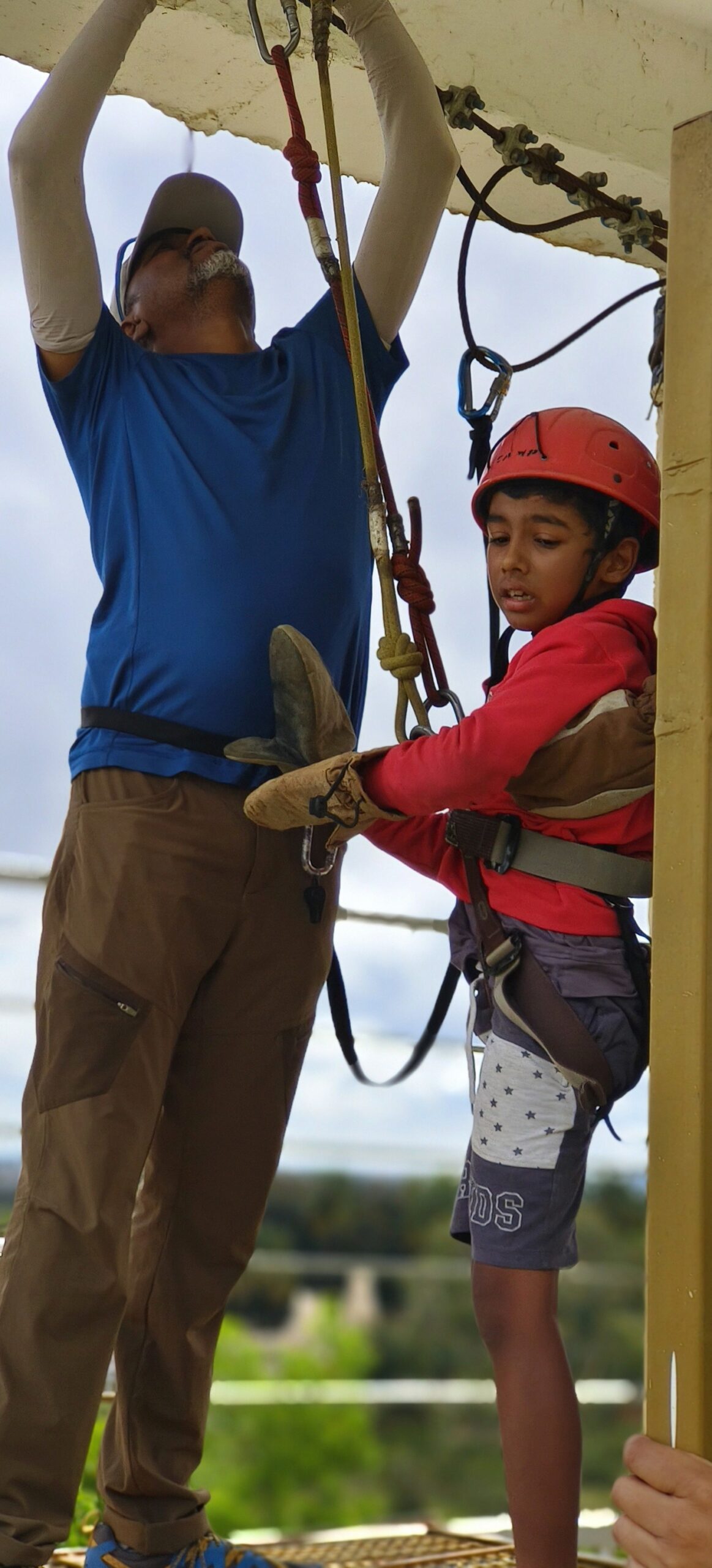
The INME team took great strides in understanding our group of children, it was a test of not just patience, but also a transformative journey of recognizing differences in another and caring for one whom they did not understand. The word ‘buddy’ that we use at Snehadhara has always fascinated me, and that’s precisely what the INME team became for the children – a friend, a peer, a helper, and, most importantly, someone who embraced the child’s world without seeking to change their core.
As the camp came to a closure, all I could think of was the Butterfly Effect. The butterfly effect is the idea that small actions can lead to big changes. Just as a butterfly flapping its wings in one place can set off a chain reaction of events, small acts can have unforeseen and far-reaching consequences. This camp, our small leap of faith, holds the potential for a cascade of positive effects on the community and for parents who aspire to provide their children with the experiences of childhood.
This camp taught me to never stop believing, in the children, myself and the world out there. Keep at it, keep doing the work, and the world will change for our children.
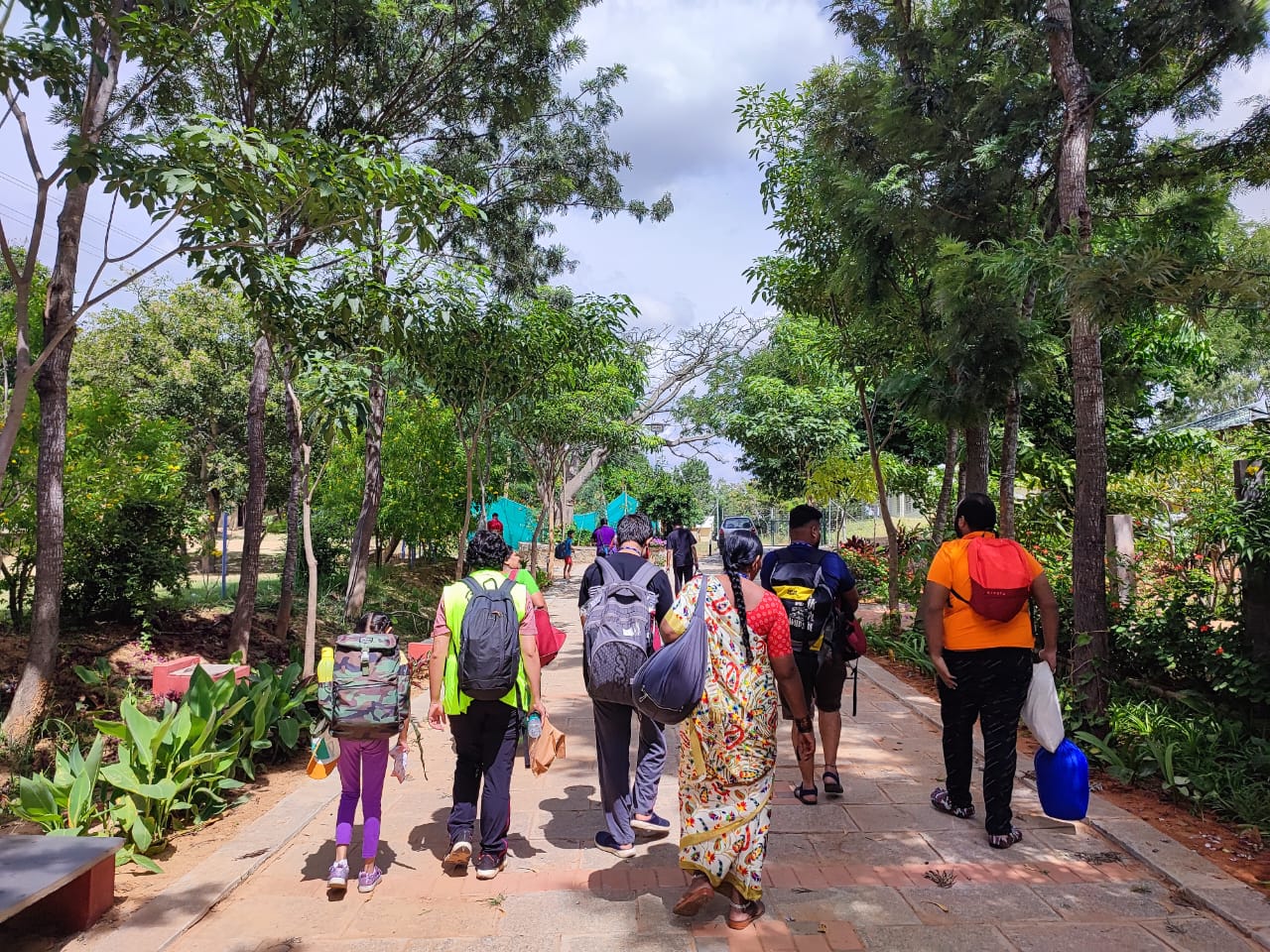
This blog is an account of a personal journey by Yashaswini Gupta, the Associate Director at Snehadhara, and a facilitator at the camp. A huge thank you to the Snehadhara and INME teams for organizing and facilitating this experience for the children and we are looking forward to continuing this work and doing a lot more of it together.

